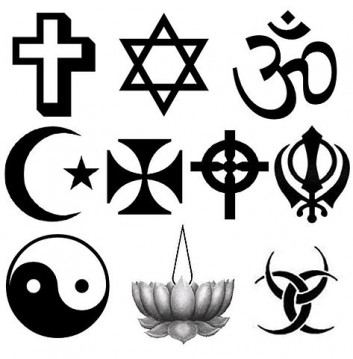
After graduating from Gonzaga University in December, I encountered (for a second time) the harsh reality of the nation’s current economy, finding myself unemployed for nearly four months. After signing on with several temp agencies, I got a job with a small food manufacturing company as the senior executive assistant. When I first got the job, I simply appreciated getting a weekly paycheck. But, as time went on, I found myself more and more frustrated with the mentality of putting profit ahead of any other aspect of the company. Additionally, the CEO (who worked hard to accomplish his achievements — which I can appreciate) made decisions in his personal life that seemed to be solely motivated by status. This stretched from things as grand as cars he drove, his home, the places he spent time all the way to the brand of socks he would purchase. Everything was a symbol of his status in society.
Symbols are interesting things. Whether we recognize it or not, symbols play a role in almost every aspect of our everyday lives. For example, if the government decided to remove the word “stop” from (what we recognize as) our stop signs, it is likely that we would still stop when we arrive at a red octagon on a post at an intersection. As a society, we just know what the red octagon means.
While this is a menial example, I think it translates to religion, too. Christians typically agree that the cross is a symbol of the sacrifice of Jesus. Jews recognize the menorah as a symbol of God’s provision and faithfulness. And the list goes on.
So, what happens when a symbol is stolen?
Several weeks ago, I read an article regarding the “Don’t Tread on Me” flag and how it is recognized as a symbol for the Tea Party. It got me wondering about what happens when the interpretation of a symbol changes. It seems like backlash is common but, after a time, it dies down and the symbol simply takes on its new, (perceptively) negative meaning and society moves on.
Researching the swastika could easily lead one to recognize that it was (and is) a symbol meant to evoke Shakti in Hinduism, Buddhism and Jainism. This has not changed. For the majority of the world, though, the swastika is a symbol of the death and attempted destruction of an entire people. Does this “new” meaning diminish the feelings that are evoked for those who hold the original meaning near and dear? I hope not!
The power of a symbol is not in how society defines the symbol, but rather, how we define the symbol. Let me put this another way:
The action of letting a symbol define a person is both neglectful and gives too much power to the symbol itself. Defining a symbol for oneself, however, gives power to a person and to a people.
The danger in this notion is that, like my previous employer, one can attempt to define oneself by attempting to let the symbol be the definition. Looking from the outside in, I cannot judge someone for driving a particular car, living in a particular place, or rubbing elbows with certain people…unless, of course, those symbols define the person. It is only when a symbol defines us that we have allowed ourselves to be hijacked and surrender our right to fear a new meaning of a symbol.
As outsiders, not knowing how one chooses to define a symbol, our role is not to pass judgment, but to find understanding in how a symbol may hold different significance to different people. Much like I wrote in a previous article, assumptions lead to misunderstanding and, subsequently, misunderstanding leads to further assumptions. The simple truth is that our perceptions of how a person relates to a symbol are never sufficient and, as such, it is our duty to solely define our own symbols for ourselves.






Awesome post, thanks for sharing!